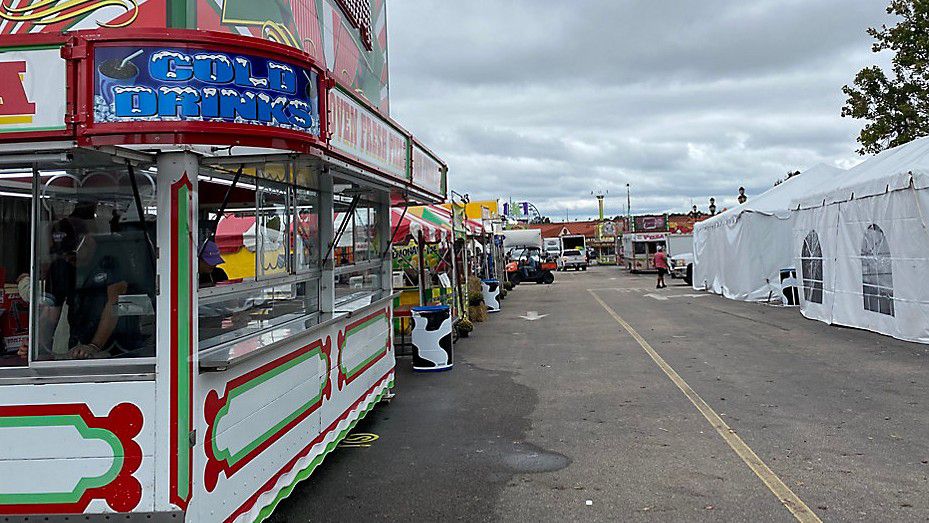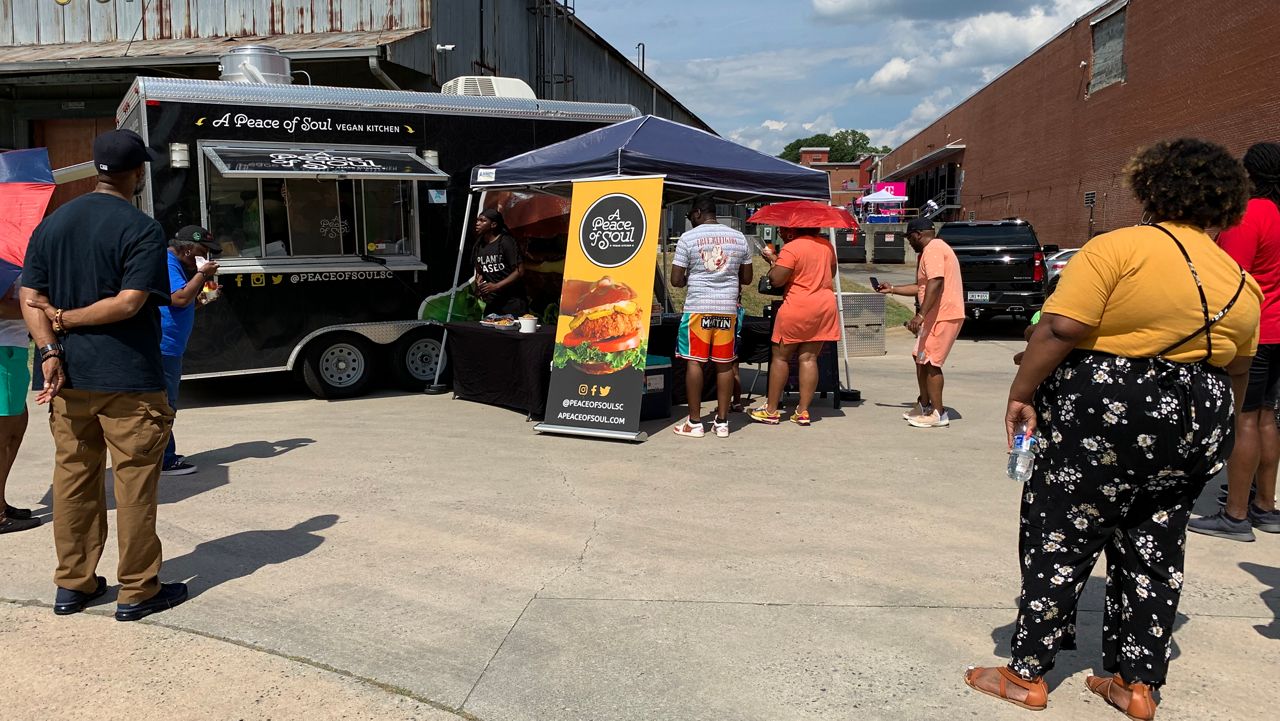RALEIGH, N.C. (AP) — A beloved N.C. State Fair staple — a booth operating for more than 100 years — is exiting the annual fair for good, and taking its iconic country ham biscuits with it.
The booth operated through a partnership of First United Methodist Church of Cary and White Plains United Methodist Church will not return to the fair, the Rev. Rob Phillips of White Plains confirmed to The News & Observer.
The primary reason for the decision: a lack of staffing exacerbated by COVID-19.
“The reality is that for many members of both churches, the COVID-19 pandemic continues to affect their lives in many ways,” Phillips said in an email to The N&O. “After prayerful consideration it was determined that we simply did not have enough support from the members of both churches to staff the hundreds of volunteer hours that the fair booth entails.
“I know that for many (including myself) in our congregation and community this is a sad decision, but we remain hopeful that God will open other doors for the church to show hospitality and continue the relationships and connections that the fair booth initiated.”
Gary Churchill, fair booth operations committee chair at First United Methodist Church, echoed the concerns about COVID within the congregation.
“The decision represents a season of change in how churches are deciding to refocus their time and energy based on the experiences of last few years,” Churchill said.
Churchill described himself as a “very active ham cook” over the past 30 years, calling the time spent at the booth each year “certainly one of my happy spaces.”
In a normal year (pre-COVID), it takes about 100 volunteers each day to cook and serve food, man cash registers and clean up the booth at the end of the night, The N&O previously reported.
Phillips told The N&O that even after considering adjustments, as other churches have, such as reducing the menu or having food made off-site and using the fair as a pick-up destination, there just weren’t enough people.
“There were enough issues in overall support and key leaders that we just didn’t feel we could make a go of it, even in a reduced capacity,” he said. “It still takes a lot of people to serve and staff, and in the end we didn’t feel like we could continue.”
The profits from the booth went to ministries and missions supported by both churches.
Phillips said that speaking for White Plains, the giving and congregational support of missions has been such that they don’t expect a dropoff in missions funding.
“We didn’t have it the last two years and our missions funding was essentially the same as it had been the years before,” he said. “It may not build up as much in reserves as in the past, but we were able to support the mission of the church at the same level.”
One of the initiatives the church continues to fund is a community food pantry.
The pantry changed during the COVID pandemic from a “walk-in and pick-up food” ministry to a drive-thru model using sources like The Produce Box, Food Lion and others.
“We are having hundreds of cars drive through and pick up fresh produce and food, and that has taken off because of COVID,” Phillips said. At First United Methodist Church of Cary, proceeds from the fair booth were used to fund various non-profits in the community.
“The proceeds went back to the community as a way to uplift organizations financially, who in turn were trying to uplift the people they had identified as being in need,” Churchill said. “Whether it was home repair type programs or food pantry programs or programs to support children having the opportunity to be read to and be fed . . . just a host of different types of non-profit, community-focused organizations.”
What Phillips said his church will miss most about the state fair booth is the community impact.
“The fundraising is nice, but I think the real loss as far as we’re concerned is the chance to meet people and interface with the community,” he said.
They are considering using local outdoor festivals such as Lazy Daze and Spring Daze to promote community fellowship.
The First United Methodist Church of Cary started serving food at the NC State Fair in 1916, making it the oldest vendor at the fair. It skipped last year to keep its workers safe amid COVID-19 concerns.
The space was instead used to administer free COVID vaccines.
The white booth with bright green trim was one in a line of several connected buildings on the fairgrounds that offer indoor service and seating.
A story published in The News & Observer in 2015, when the church was about to start its 100th year at the fair, notes that church historian Bob Warner believes ham biscuits first appeared on the menu in the 1950s, when the minister’s wife said she knew of someone who could provide some good country hams.





